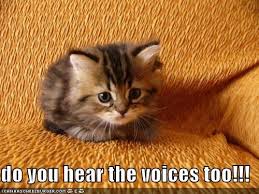A guest post by Guy Anthony De Marco
As the summer approaches, there are more items and events that will be tugging on your availability. Full-time writers with several years of discipline under their belt have an easier time saying “no” to joining in on the fun when there’s a deadline looming, but what about the part-timers or those who just made the jump to full-timer?
First off, let’s have a quick discussion about writing. It’s a career or, for some, a creative outlet. In order to write about characters, one has to experience life. Locking yourself in a basement is not only bad for your health (think radon and rickets), but it may lead to a regression in your ability to write realistic characters. Plan your day so you can go out and have some fun and still have time to write your daily word count. Depriving yourself of social intercourse, fresh air, sunlight, and fun may lead to resentment towards your writing, with symptoms including writer’s block and a lack of enthusiasm for writing in general.
With that said, here’s three ways to combine writing and having fun social interactions.
1. Take your current characters with you.
No, don’t smuggle your expensive Macbook Air to the beach. Make a mental list or, if needed, take a couple of index cards with you concerning upcoming interactions between your characters. For example, you have four fighters that are going to a rough neighborhood to stay at a particular inn. How can they interact without sounding like genetic clones?
With these characters in mind, listen to the people around you on the beach. There should be plenty of conversations you can tap into, and having a bunch of people wearing as little as possible tends to lead to a lot of bravado and one-upsmanship. Listen to how they joke around, how they (hopefully) good-naturedly poke fun at each other. Listen to the words they choose, the cadence of their voices, and look at the expressions on their faces. You can get a solid idea how to make your characters sound like different people (and not just projections of you saying the same things in the same manner for all four characters.)
Once you’ve heard enough, move on to the next scene with your characters and find someone who can help expand that scene into something wonderful.
2. What’s that smell?
Hopefully, that funny smell isn’t you.
Scents are interesting things. They can trigger the strangest memories, or they can make you think of faraway places. Unfortunately, too few people use the sense of smell in their writing because they’re so dependent on visual descriptions.
For this example, let us assume you’re walking to a nice restaurant in New York City to meet a friend. There are plenty of scents surrounding you, and these smells can help your worldbuilding become “real” to your audience. Since it’s summer in Brooklyn, you may smell the boiling hot dogs and the bite of fresh sauerkraut from a cart on the corner, which makes your tummy rumble. Passing by an old Italian delicatessen can fill your nose with spicy dill pickles floating in a wooden barrel and the oily goodness of a Genoa salami getting sliced thin for the customer at the counter. Add in a bit of spicy brown mustard for a fresh pastrami sandwich being assembled by the daughter of the owner and you increase your pace because your hunger has just kicked into high gear.
Continuing on, your lungs get filled with a cool, moist smell of water evaporating off of the asphalt. The firemen have opened up one of the fire hydrants to flush out the water system, and you can hear the laughter of several dozen kids of many ethnicities, all playing together in the spray without a care in the world. Nearby, the lady who has a small fragrant rose garden next to her brownstone smiles at you, so you stop to request a rose to give to your friend. She obliges, and adds in a gardenia from the window-box by her kitchen window. Your friend will certainly appreciate the gesture. Perhaps this will be the day you confess you’ve been crazy about your friend for years.
Two scenes, two sets of smells that evoke memories and emotions in your readers.
3. Shadows and Light
This can be a fun game to play, and I do it all the time. I try to imagine what someone else sees and feels. If I’m sitting in my car at a long stoplight in Denver, I try to look around and notice what’s really going on, paying attention to the things that are normally ignored as extraneous background clutter. For example, last week I watched a couple have an argument on the sidewalk at a bus stop. I picked one of them and tried to imagine everything they saw from their perspective. I couldn’t hear their words, so I came up with a reason for the argument. Because he was carrying two bags from a local supermarket, I scripted that they ran into an old flame of hers in one of the aisles. He didn’t like how she lit up when she saw him, and he’s now feeling that he’s not good enough for her. She wasn’t saying much back to him, so I imagined her tapping her foot, holding in a lot of the anger she’s feeling about how he conducts himself around other women. Finally she blurts out the way he’s feeling is exactly how she feels when she catches him staring at a younger woman’s figure. Perhaps it’s a breakthrough for the couple, or perhaps it’s the end of the relationship, all because they decided to go to the store for some chips and salsa.
At the next light, I notice someone waiting for the signal to turn green in the opposite lane. They’re languidly sliding their gaze over everything, yet not actually seeing what they’re looking at. I imagine the elderly driver looking into my car and notice I’m watching her. It’s fun to imagine someone else peering at you, and trying to figure out how they perceive you. Perhaps she gets startled that someone is watching her, wondering if that big scary-looking man is a criminal searching for someone to rob. Or perhaps I remind her of a friend of her ex-husband, and that triggers a flood of memories and emotions.
4. It’s Your Turn
Don’t assume that because you’re not sitting in front of a keyboard that you’re not writing. The tough part of being an author involves working things out in your head. Physically poking keys with your fingers is the final process of dumping your brain-story into a medium that other folks can read and enjoy. You can do a lot of your “writing” while getting out in the world, talking to people besides yourself and the television, and avoiding rickets and writers block.
About the Author:
Guy Anthony De Marco is a speculative fiction author; a Graphic Novel Bram Stoker Award®; winner of the HWA Silver Hammer Award; a prolific short story and flash fiction crafter; a novelist; an invisible man with superhero powers; a game writer (Sojourner Tales modules, Interface Zero 2.0 core team, D&D modules); and a coffee addict. One of these is false.
A writer since 1977, Guy is a member of the following organizations: SFWA, WWA, SFPA, IAMTW, ASCAP, RMFW, NCW, HWA. He hopes to collect the rest of the letters of the alphabet one day. Additional information can be found at
Wikipedia,
GuyAndTonya.com, and
GuyAnthonyDeMarco.com.
 We’ve seen some incredible stories this month. I know I’ve enjoyed them.
We’ve seen some incredible stories this month. I know I’ve enjoyed them.


